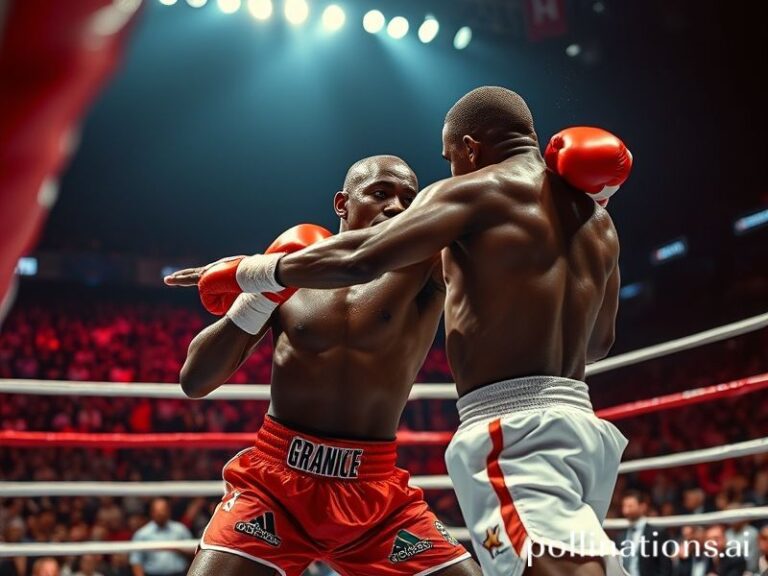Gary Oldman’s Slow Horses: The Spy Show the World Uses as an Intelligence Brief
Gary Oldman’s Slow Horses: A Delightfully Dysfunctional Mirror for a World That Forgot How to Gallop
By Eduardo “Eddy” Valdez, Senior Correspondent, Dave’s Locker
There’s a moment in the third season of “Slow Horses” when Jackson Lamb—Gary Oldman’s flatulent, trench-coated monument to institutional neglect—lights a cigarette inside a supposedly secure MI5 safe house and growls, “Democracy ends with a whimper, not a bang; it just smells like fried onions first.” Somewhere between the Thames and the Tigris, 47 foreign ministries quietly updated their risk assessments: the West’s favorite spy show is no longer escapism; it’s a quarterly intelligence brief with better lighting.
Globally, we keep appointing sleek technocrats to fix problems created by sleek technocrats. Enter Lamb’s crew of misfits—exiled spooks whose careers flat-lined somewhere between Baghdad burn-pits and Brexit spreadsheets. To Beijing, they’re proof that liberal democracies can’t retain talent; to Moscow, they’re a recruitment video with sarcasm subtitles; to everyone else, they’re simply the most accurate civil-service sitcom since the Roman Senate invented knife-voting.
Oldman plays Lamb like a hung-over Zeus who misplaced his thunderbolt and now weaponizes body odor. Critics call it “career-defining”; diplomats call it “Tuesday.” After all, most international negotiations now hinge on people who look like they slept in their clothes, mainly because they did. From the Quai d’Orsay to the corridors of ASEAN, mid-level attachés binge the show on encrypted iPads, comforted by the revelation that Britain’s finest intelligence minds misplace USB sticks as frequently as they misplace their moral compasses.
Yet the series’ genius is geopolitical, not parochial. Each season exports a uniquely British anxiety—post-imperial decay, class self-loathing, the suspicion that the empire was always just a pyramid scheme with better tailoring—and repackages it for a planet that’s likewise discovering its own irrelevance. When Lamb mutters, “We’re not the good guys; we’re just the guys who still have the key to the stationery cupboard,” viewers in Lagos hear echoes of their customs officers. In Lima, bureaucrats nod along: the filing cabinets are still locked, but someone auctioned the keys on MercadoLibre.
Netflix, Apple+, and assorted streaming kleptocracies have licensed “Slow Horses” into 190 territories, making it more ubiquitous than WHO guidelines and roughly as binding. UNESCO, in a moment of bureaucratic poetry, cited the show as “an anthropological study of institutional self-sabotage.” Translation: every government now recognizes its own middle-management gulag, only with worse coffee.
The real twist lies off-screen. While Lamb’s fictional Slough House drowns in mold and regret, the UK’s actual Government Communications Headquarters has resorted to recruiting on TikTok, promising recruits “zero chance of trench-coat cosplay.” Meanwhile the CIA’s recruitment ads feature stock-photo diversity so aggressively cheerful it resembles a multicolored hostage video. Somewhere in Tehran, a Revolutionary Guard analyst is writing a memo titled “Why Their Losers Outclass Our Best,” footnoting Lamb’s digestive tract as evidence of Western decadence—and operational endurance.
Financially, the show is a soft-power annuity. British defense contractors report a 14 % spike in foreign inquiries for “cyber-retainers”—translation: please make our IT look as effortlessly broken as MI5’s. Tourism boards hawk “Slow Horses” walking tours past actual abandoned safe houses, now re-branded as “heritage dereliction sites.” Even the EU, never one to miss a grant opportunity, is funding a think tank on “Strategic Underperformance as Deterrence.” Its first paper is 400 blank pages stapled together; reviewers call it “masterfully Oldmanesque.”
As Season 4 looms, the world braces for another dose of strategic schadenfreude. Climate summits will quote Lamb’s aphorisms the way they once misattributed Churchill. Autocrats will binge the finale for morale, comforted by the spectacle of a democracy devouring itself with such exquisite comic timing. And somewhere in a damp London basement, a real-life slow horse will file a report nobody will read, secure in the knowledge that failure, like empire, is simply outsourced entertainment now.
Conclusion: “Slow Horses” isn’t just a spy drama; it’s the globalized age’s shared screensaver of decline—equal parts tragedy, farce, and occupational therapy. We watch because the alternative is admitting we’re all in the same stable, wondering who forgot to lock the door and why the hay smells distinctly of onions.







